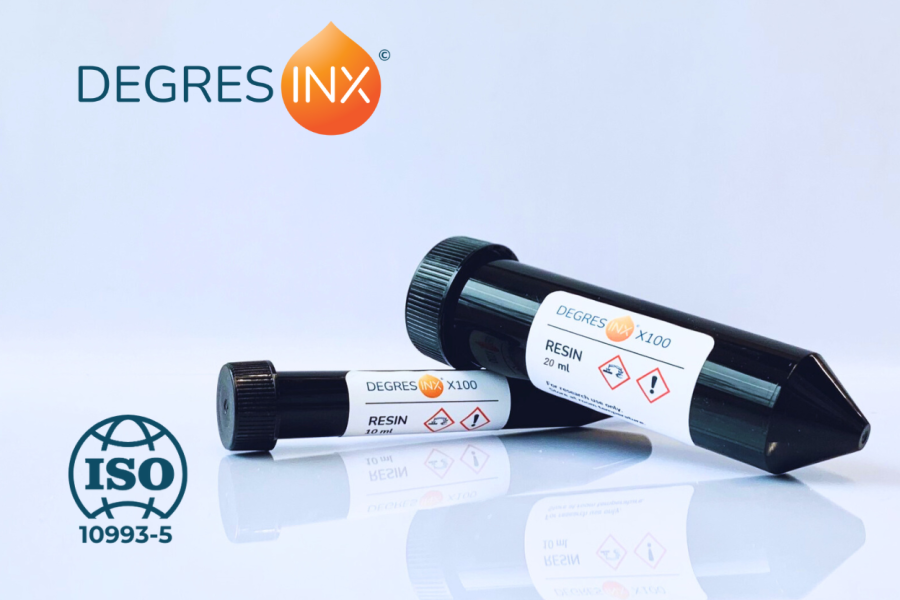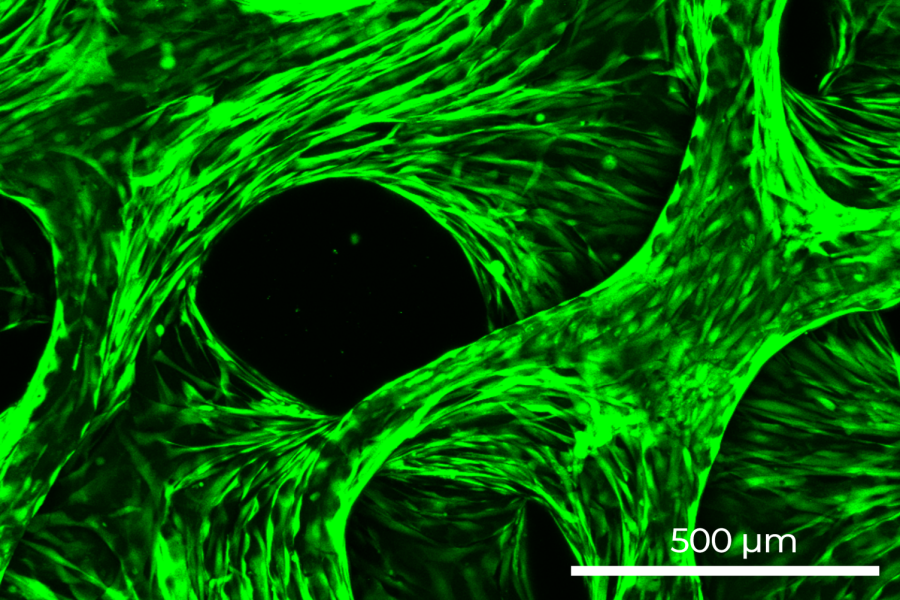BIO INX Launches DEGRES INX: The first Biodegradable and Biocompatible Resin with shape memory properties for Light-based (Bio)Printing
BIO INX Launches DEGRES INX: The first Biodegradable and Biocompatible Resin with shape memory properties for Light-based (Bio)Printing
Ghent, 19/06/2024 - BIO INX, a leading company in bioink technologies, proudly announces the launch of DEGRES INX, a biodegradable resin with shape memory properties. This innovative material can be deformed into a temporary shape after 3D printing and returns to its original printed shape when heated to body temperature.
World First
The resin is specifically developed for digital light projection (DLP) based 3D-(bio)printing. This material is a world first, as it not only possesses shape memory properties but is also biodegradable and biocompatible (according to ISO 10993-5 standards). This means that the resin is suitable for cell cultivation after 3D printing.
Shape Memory
The material is polyester-based, making it biodegradable. Additionally, it has shape memory properties at 37°C. This allows a complex shape (with resolutions up to 100 µm) to be printed, deformed (e.g., compressed) upon heating, and fixed by cooling below body temperature. Upon reheating, the original complex shape will be restored. This paves the way for 4D-(bio)printing, where the fourth dimension is time after 3D printing.
Biological Applications
Given the biocompatibility of the material, it is suitable for cell cultivation after printing. Moreover, the material's biodegradability ensures that cells can eventually replace the 3D-printed construct entirely with their own extracellular matrix. Thus, the resin can be used in the field of biofabrication or 3D printing of cells and tissues for regenerative medicine applications. The shape memory properties open new doors for biomedical applications. For example, this material could be used in minimally invasive surgery, where a collapsed structure can be introduced into the body through a small opening. Upon contact with body temperature, it will unfold into the original complex shape.
Despite being polyester-based, the printed structures are relatively flexible yet mechanically robust. This makes them ideal for more robust biomedical applications. When these structures are combined with BIO INX's gelatin-based materials, they can be used for cartilage or bone regeneration.
"The material is specifically developed for biocompatibility, design flexibility, and shape memory properties. In this way, it is ideal for 4D-(bio)printing solutions. It can be, for example, an ideal material for biodegradable stents, where a collapsed version can be used to introduce the structure to the desired location, where it will expand after exposure to body temperature," says Aysu Arslan, CSO at BIO INX.
New Printing Technology for BIO INX
With DEGRES INX, BIO INX expands its portfolio with materials for DLP-based printing technology, in line with their slogan "from light to life." "We believe that light-based technologies are the future of bioprinting due to their high resolution, speed, mild crosslinking conditions, and scalability," says Jasper Van Hoorick, CEO at BIO INX. It is BIO INX's mission to make 3D bioprinting turnkey with standardized, "plug & print" materials, as standardization is the path to the clinic.
Launch in America
DEGRES INX will be officially launched at the TERMIS World Conference in Seattle, from June 25 to 28, where BIO INX will exhibit at booth 411. Additionally, the product is also available through the BIO INX webshop at www.bioinx.com.


